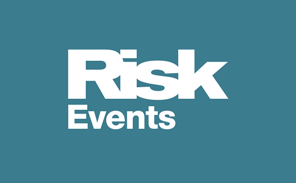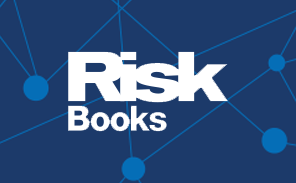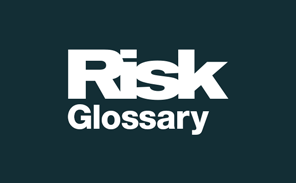Operational risk management for leaders: advanced level
View AgendaKey reasons to attend
- Understand regulatory expectations and evolving core operational risk tools
- Apply a three-step approach to developing op risk appetite
- Explore ways to develop successful risk teams
Customised solutions
Does your team require a tailored learning solution on this or any other topic?
Working with the portfolio of expert tutors and Risk.net’s editorial team, we can develop and deliver a customised learning to make the most impact for your team, from initial assessment to final review.
About the course
This advanced course will give participants the opportunity to focus on the current issues facing operational risk management, from incorporating ESG into op risk frameworks to examining why risk control self assessments (RCSA) fail and how to derive value. It will aid risk professionals in adjusting practices to remain at the forefront of industry development and regulatory expectations.
The course have been structured to provide crucial knowledge and ample opportunity for group work and discussion to address emerging themes and benchmark solutions with peer firms.
The course is packed with practical information, and will end with a discussion in which attendees share the key takeaways that will impact decision-making and planning in their organisation.
What participants say:
- ‘Great course, knowledgeable and engaging presenter, good coverage of subjects’
- ‘It has been a very enjoyable, educational course with a lot of useful information to take away’
- ‘Excellent use of time, well paced and well presented’
Pricing options:
- Early-bird rate: save up to $500 per person by booking in advance
- 3-for-2 rate: save over $3,000 by booking a group of three attendees
- Subscriber reward: save 30% off the standard rate if you are a Risk.net subscriber
- Season tickets: cost-effective option for groups of 10 or more. Learn more
Learning objectives
- Address current issues in op risk management
- Find meaningful ways to incorporate ESG into op risk frameworks
- Structure a value-added op risk appetite statement
- Conduct a deep dive into why RCSAs fail and how to succeed in deriving value
- Examine emerging risk identification and management processes
- Understand the key skills modern risk professionals need to invest in your teams
- Debate the future of op risk
- Review practical examples, case studies and industry benchmarks
- Interact with fellow practitioners and benchmark the maturity of approaches against peers
Who should attend
Job titles may include but are not limited to:
- Chief risk officers
- Heads of operational risk
- Heads of enterprise risk
- Heads of compliance
- Heads of internal audit
- Senior operational risk leaders
- Governance and control
Agenda
June 13–14, 2024
In-person. Location: London, UK
Sessions:
- Understanding, measuring and embedding risk culture
- Incorporating environmental, social and governance (ESG) into operational risk frameworks
- Why risk control self-assessments (RCSAs) fail and how to derive value
- Group discussion: cyber, third-party and operational resilience
- Identifying and managing emerging risks
- Creating an impactful operational risk appetite
- Developing successful risk teams
- Group discussion: the future of operational risk
Tutor:
- Elena Pykhova, Director and founder, The OpRisk Company
Venue:
- 133 Houndsditch, London, EC3A 7BX, UK
Tutors

Elena Pykhova Risk Learning Faculty
Director and founder
The OpRisk Company
Elena Pykhova is award-winning risk expert, author, international trainer and educator. She is the founder of a boutique risk management consultancy, The OpRisk company, specializing in risk transformation, board and executive level advice on effective operational and enterprise risk management strategy, design and implementation. Elena is an author of a best-selling book, Operational Risk Management in Financial Services: A Practical Guide to Establishing Effective Solutions. She is a renowned educator, running public and in-house training courses in the UK and internationally for world-leading organisations including the London Stock Exchange Group Academy, the Moller Center Cambridge University and the Institute of Internal Auditors. Elena is a thought leader, influencer and founder of a prominent industry think tank, the Best Practice Operational Risk Forum. She is a former Director for Education at the Institute of Operational Risk and chair of the Expert Panel for the Association of Foreign Banks. Passionate about the discipline, she founded her training and consulting practice after 20 years of experience in senior roles at Fortune 500 companies.
Testimonials
“Elena is an excellent, fun and knowledgeable trainer”
“Elena was excellent at providing practical examples.”
“Elena is very knowledgeable and does not only share the information but is also able to explain and answer to question with good examples.”
“Elena is a very knowledgeable speaker…and her presentations keep me engaged throughout”
Accreditation
This course is CPD (Continued Professional Development) accredited. One credit is awarded for every hour of learning at the event.
Pre-reading materials
The Risk.net resources below have been selected to enhance your learning experience:
- SEC skewers Goldman for specious ESG claims
- New risk indicator shifts EU’s G-Sib score heatmap
- Changes in operational risk and its determinants under Covid-19
A Risk.net subscription will provide you access to these articles. Alternatively, register for free to read two news articles a month.



